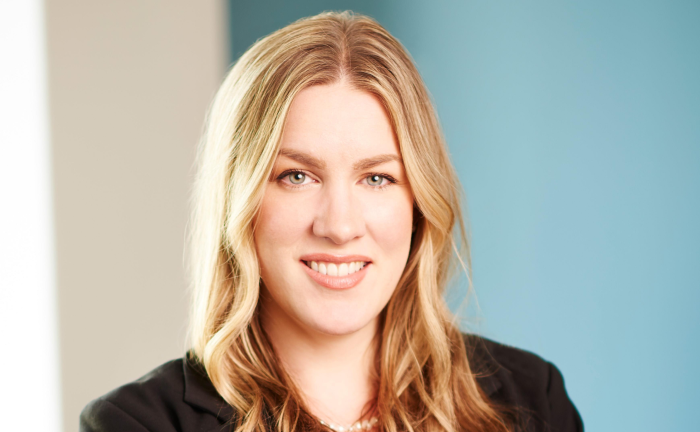In my 401(k) retirement plan, I’m 82% stocks. I’m 65 and still working. Should I be moving my stocks to bonds?
-Bob
While it's not a satisfying answer, the real answer is that "it depends." The decision of whether to shift your 401(k) to a more conservative asset allocation will depend primarily on your longer-term goals, personal drivers of your risk/return profile and the asset allocation in your other accounts, if applicable. (And if you need help picking a suitable mix of stocks and bonds, consider speaking with a financial advisor.)
Reflect on Your Long-Term Goals
Before making any asset allocation decisions, I suggest you start by reflecting on your long-term goals for these savings. What do you intend to use the money for? Gaining a clear understanding of your longer-term goals will largely inform your time horizon, risk tolerance and return objective, the three inputs which collectively drive asset allocation decisions.
If your goal is to use the entirety of these savings for income when you eventually retire, then your time horizon will be your remaining time working plus your retirement years. With this goal and time horizon, you'll need to evaluate your retirement readiness in the context of all sources of retirement income, including your 401(k) plan, other investment and savings accounts and Social Security, among others.
If you feel that you are behind in saving the amount required to support your desired level of spending in retirement, you will likely have a higher return objective since you need to achieve additional growth in your portfolio to advance your retirement goals. A higher return objective is generally associated with taking on more risk. Prioritizing capital appreciation by maintaining more exposure to stocks could be necessary in this situation. However, if you are confident that the various sources of retirement income can support this spending, you might have a lower return goal that emphasizes capital preservation rather than growth. Shifting to a more conservative allocation in the retirement plan could be prudent.
Perhaps you have built up more than enough savings to support your retirement and wish to pass on some of your assets to future generations. Multigenerational goals will require a different outlook. In this case, maintaining a more aggressive, equity-oriented asset allocation could make sense since the time horizon will extend beyond your retirement period into the next generation(s). (And if you need help setting financial goals, like retiring by a certain age, a financial advisor can help.)
Consider Your Personal Factors
When thinking about asset allocation and risk tolerance, an often-overlooked consideration is the nature of one's income stream. If you are a business owner, then your net worth is likely tied up in the equity value of your business. Because business ownership carries an inherent level of risk, maintaining a conservative allocation in your investment portfolio could be warranted.
You will likely want to take a similar approach if you don't own a business but your income fluctuates meaningfully from year to year. Conversely, if your income is highly stable then you might have more flexibility to take risks with your investments. Income-based factors are one input into your ability to bear risk.
Health is another factor that contributes to your ability to accept risk. Do you currently have, or expect to face, elevated healthcare expenses? If the answer is yes then you might want to reduce the risk profile of your retirement plan by shifting some assets to cash and bonds. However, if you have long-term care or other arrangements in place you might be able to accept more risk in your portfolio.
It is also helpful to reflect on your own behavioral approach to investing. This is commonly referred to your willingness to accept risk. Are you able to stomach equity market drawdowns and potentially use them as buying opportunities, as we experienced in 2018, 2020 and 2022? Or did you sell on the way down during those challenging periods? Together, ability and willingness to accept risk form your risk tolerance.
The biggest risk to success with a stock-heavy portfolio is selling when the market turns against you. Having the fortitude to stick with positions during volatile periods in the market indicates a greater willingness to accept risk. This can nudge your risk tolerance upward and justify holding a larger relative equity allocation. (A financial advisor can help you create an investment plan and stick to you.)
Review Your Other Accounts
It’s critical to then compare your goals, risk tolerance and return requirements to the asset allocations across your accounts and make sure they match.
Investors in their 60s will typically hold between 40% and 60% of their invested assets in stocks. Holding 82% of your retirement plan assets in stocks could be a sound decision if you own other accounts that are allocated more heavily towards bonds and cash. If that is not the case, then reducing the stock allocation in your 401(k) or other accounts could be beneficial. (And if you need more help making these decisions, consider matching with a financial advisor.)
Of course, it is critical that you align this overall asset allocation with your long-term goals, time horizon and risk/return objectives – age is not the only criterion!
Next Steps
While age represents an important driver of asset allocation decisions, additional factors should be considered before shifting your portfolio from stocks to bonds. We encourage you to look beyond age to understand your longer-term goals and where you are currently in relation to those goals. It is also important to think critically about other factors that might adjust your personal risk profile and return requirements upward or downward.
Lastly, evaluate your asset allocation holistically, incorporating any other investment accounts you own in addition to your 401(k) plan. In doing so, you can more accurately assess your time horizon, risk tolerance and return objectives, which will help you allocate among stocks, bonds, cash and other securities in a way that will put you on the best path to achieve your goals.
Tips for Finding a Financial Advisor
Finding a financial advisor doesn't have to be hard. SmartAsset's free tool matches you with up to three vetted financial advisors who serve your area, and you can have free introductory calls with your advisor matches to decide which one you feel is right for you. If you're ready to find an advisor who can help you achieve your financial goals, get started now.
When talking with prospective financial advisors, it’s important to ask the right questions. As you consider your options, these are the questions you should ask an advisor to ensure you make the right choice.
Loraine Montanye, CFP®, AIF®, is a SmartAsset financial planning columnist and answers reader questions on personal finance topics. Got a question you'd like answered? Email [email protected] and your question may be answered in a future column.
Loraine is a senior retirement plan advisor at DBR & CO. She has been compensated for this article. Additional resources from the author can be found at dbroot.com.
Photo credit: ©iStock.com/jacoblund, ©iStock.com/shapecharge
The post Ask an Advisor: ‘Should I Be Moving Stocks to Bonds?’ I’m 65 and Have 82% of My 401(k) in Equities appeared first on SmartReads by SmartAsset.


